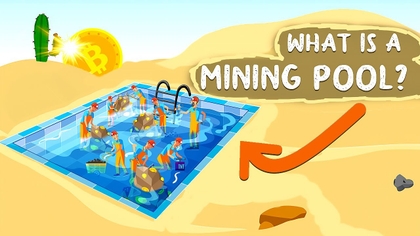Stop overpaying - start transferring money with Ogvio. Sign up, invite friends & grab Rewards now! 🎁
Crypto Exchange Kraken Rolls Out NFT Marketplace for Beta Testers
Kraken NFT marketplace offers access to 70 Ethereum and Solana NFT collections.
Kraken, a United States-based cryptocurrency exchange and bank established in 2011, has launched its own non-fungible token (NFT) marketplace for Beta testers.
According to the blog post shared on November 3rd, the marketplace is currently available to a select group of Beta users that signed up for a waitlist in May.

Did you know?
Subscribe - We publish new crypto explainer videos every week!
What is a Crypto Mining Pool? Is it Worth it? (Beginner-Friendly)


The select users can secure, trade, and store NFTs “while paying zero gas fees.”
The Kraken NFT marketplace contains “the most prominent NFT collections from the Ethereum and Solana ecosystems.” Beta testers can access 70 collections, including Bored Ape Yacht Club, CryptoPunks, Doodles, and Moonbirds.
Based on the blog post, the NFT marketplace will provide investors the most crucial information about their desired non-fungible token. The descriptions will include “the name of the creator, how many other NFTs exist within the collection, and the NFT’s previous sale history.”
Moreover, Kraken NFT marketplace has a built-in rarity scores feature, which provides information about how rare different traits are within a particular collection. According to Kraken, having access to this information allows one to determine the value of desired NFT.
It is worth noting that to purchase NFTs, buyers can use any cryptocurrencies supported by Kraken in investor regions, including Bitcoin (BTC), Ethereum (ETH), Solana (SOL), and so on.
On top of that, Kraken highlighted that to sell their NFTs, investors can use its “streamlined platform," which allows avoiding connecting to the Ethereum or Solana blockchains with Metamask or Polygon wallets to sell the selected non-fungible tokens.
Kraken noted that the company is working on opening its NFT marketplace to the public “soon after” releasing the Beta version.
In other Kraken-related news, on October 19th, the company reportedly sent emails to its Russian users claiming that in compliance with EU regulations, the company is no longer able to provide crypto services to Russians.











![How to Transfer Money Without Fees? [Animated Tips 2025] How to Transfer Money Without Fees? [Animated Tips 2025]](https://assets.bitdegree.org/youtube/crypto-finally-explained/how-to-transfer-money-without-fees-animated-tips-2025.jpg?tr=w-400)










